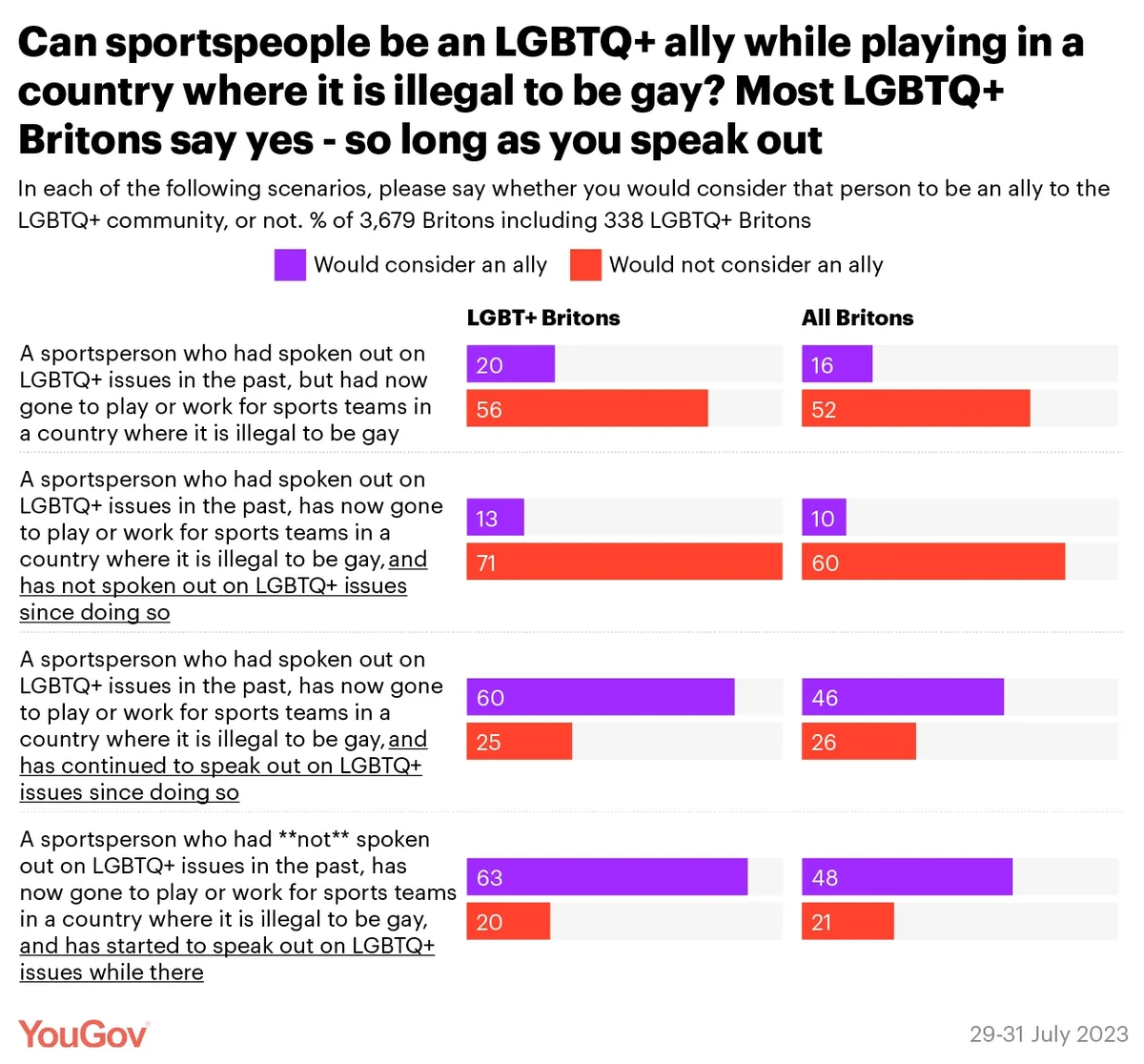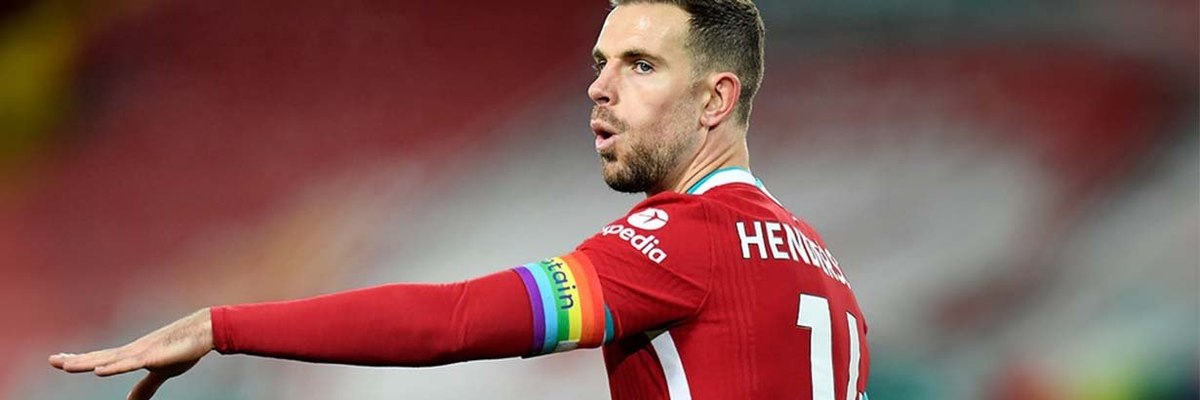Most LGBTQ+ Britons say you can, so long as you continue to speak out on LGBTQ+ rights while you are there
Last week, England footballer Jordan Henderson came in for criticism for signing with the Saudi club Al-Ettifaq. Henderson isn’t the first big England name to attach themselves to a Saudi team, but some regarded the move as a betrayal given Henderson’s previous outspoken support for LGBTQ+ rights.
The move raises the question – is it possible to be an ally to the LGBTQ+ movement while playing for a team in a country where being gay is illegal? A new YouGov survey puts that dilemma to LGBTQ+ Britons, as well as the wider public.
The answer appears to be that you can be an ally – but only so long as you speak out in favour of LGBTQ+ rights while doing so.
By 61% to 24%, LGBTQ+ Britons say that they would consider an ally a sportsperson who had spoken out on LGBTQ+ issues in the past, had now gone to play or work for a sports team in a country where it is illegal to be gay, and has continued to speak out on LGBTQ+ issues since doing so.
Likewise, by similar proportions (64% to 19%) LGBTQ+ Britons would also assign ally status to a sportsperson who had not spoken out on LBGT+ rights previously, but had started doing so after having gone to play or work in a country where it is illegal to be gay.

The wider public are more likely to be unsure, but still largely come down on the side that sportspeople in these two cases could be considered allies.
However, former good deeds towards the LGBTQ+ community do not sustain your ally status after moving to countries like Saudi Arabia. Were such a sportsperson not to continue speaking out on LGBTQ+ rights after having moved country, just 13% of LGBTQ+ Britons would consider them an ally, with 72% saying they would not.
Henderson himself has only just announced his move to Al-Ettifaq, so time will tell whether or not he continues to be vocal in his support for LGBTQ+ rights. His case currently comes closest to our control question, which asked about a sportsperson who had spoken out in the past and now gone to play in a country where it is illegal to be gay, but did not specify about whether or not they had continued to speak out since doing so. In this case, just 20% of LGBTQ+ Britons consider them an ally, with 55% saying they don’t.
For these last two examples, at least half of Britons likewise say they would not consider that sportsperson to be an ally (52-60%).
Photo: Getty











